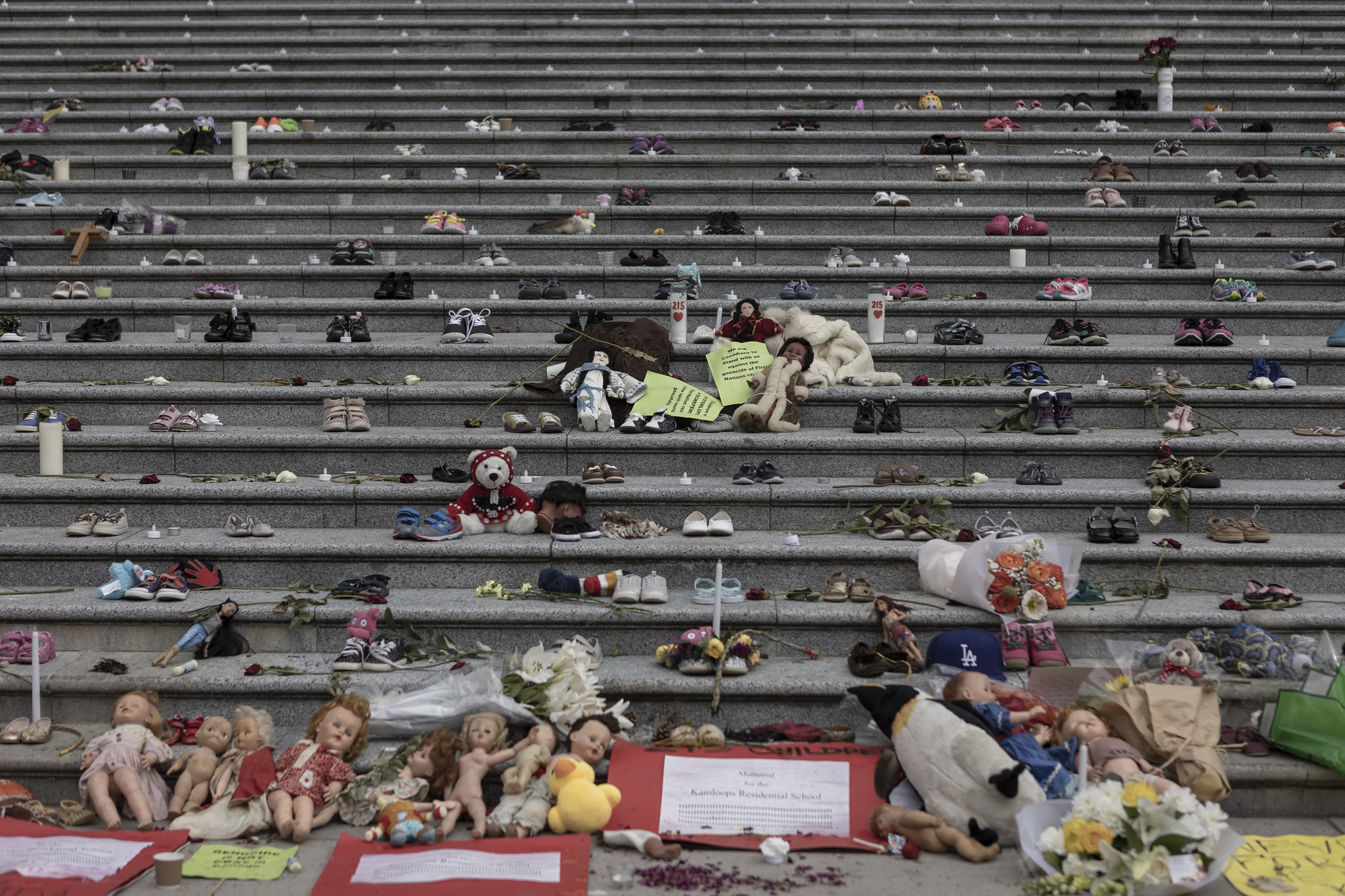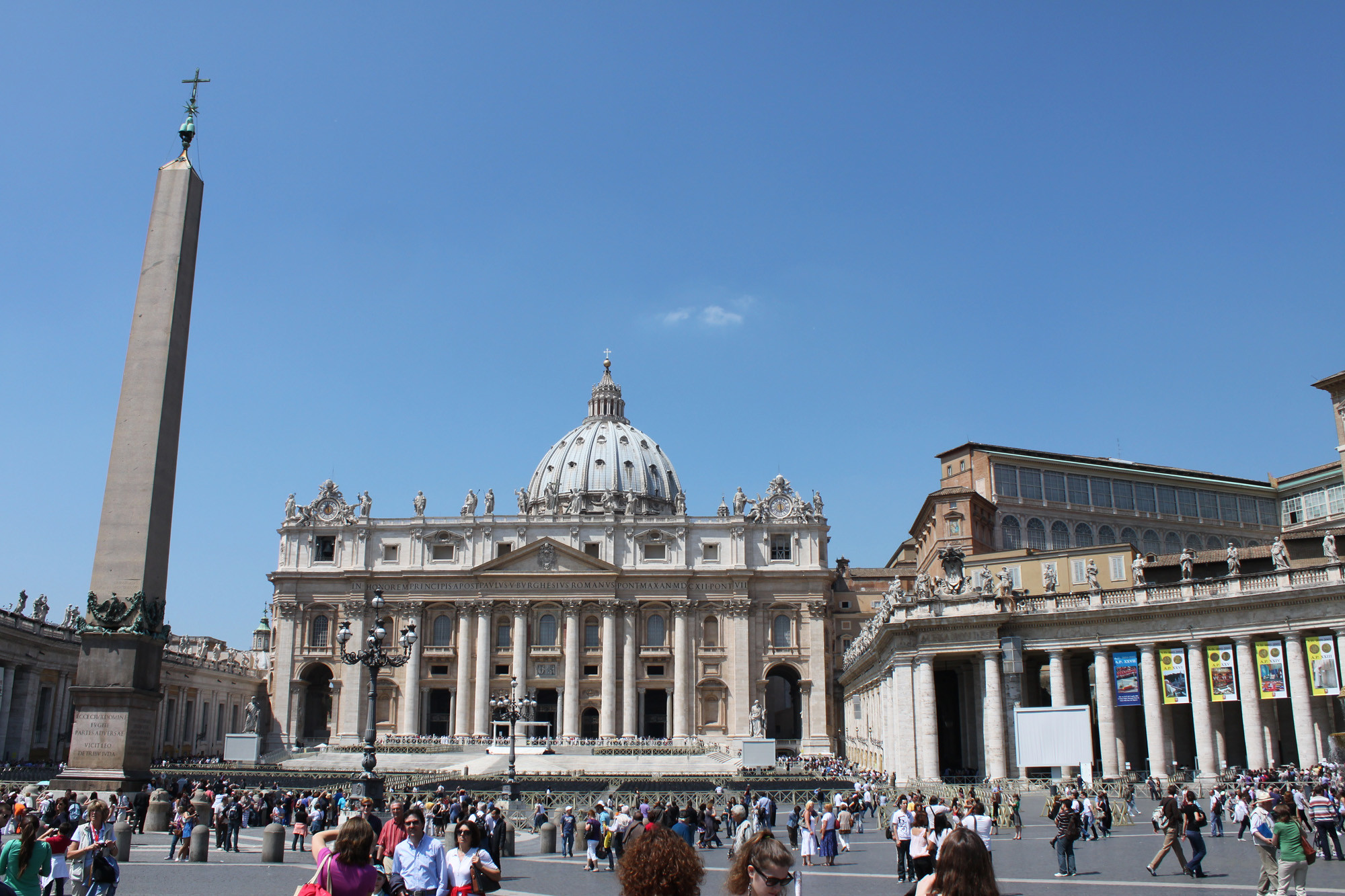In light of the recent discovery of 215 Indigenous children in unmarked graves at a former Catholic-run residential school in British Columbia and investigations at other former residential schools, there have been renewed calls for the Pope to apologize for residential schools and for the Catholic Church to release its records.
The story has also turned public scrutiny on how the Catholic Church has responded to other calls to apologize and be accountable to victims in cases of sexual abuse both in residential schools and throughout the church.
You may unsubscribe from any of our newsletters at any time.
In 2020, I received a federal grant to study the Catholic Church as an organization that can be engaged in potentially contradictory practices to their principles, mission and values. This includes examining the content of websites and electronic documents — including safe and responsible ministry policies, protocols and codes of conduct — of the 18 Catholic archdioceses across Canada. Chiedza Chigumba, a doctoral student at Saint Mary’s University, is working with me as a research assistant on the project.
The guidelines on clergy sexual abuse issued by the Canadian Conference on Catholic Bishops, which were updated in 2018, state that “victims must come first.”
More on Broadview:
- Residential school survivor wants Catholic Church to pay millions originally promised
- His ancestors never came back from residential school, so he went to visit them
- 4 questions Christians need to ask if we’re to make good on reconciliation
But preliminary research has provided some evidence of how parts of the church are trapped within defensive and legalistic language in their policies and codes of conduct related to preventing, addressing and reporting sexual abuse.
A main implication is that not only is it time for church leaders to better walk the talk of putting the needs of the vulnerable and victims first, it is also time to change the tone of the talk.
The church must move towards a victim-focused and trauma-informed language and corresponding practices of accountability dedicated to acknowledging and transforming a church culture of denialism, complicity, conformity and protectionism.

Devastating effects
Much of my earlier research involved studying business from a critical perspective, often involving case studies of irresponsible corporate practices.
In 2010, as a practising Catholic, I blew the whistle when I learned a priest who was convicted of sexually abusing boys in the 1990s in Newfoundland was participating in ministry with young children in a Nova Scotia parish.
After this, I decided to explore ways in which religious organizations are both unique from and similar to non-religious organizations in contexts of responsible leadership.
Clergy sexual abuse and its coverup have resulted in devastating effects for direct victims: children, young seminarians, nuns and other vulnerable adults, as well as families and communities.
Investigative research has found that church leaders’ response to sexual abuse charges have often prioritized concern about reputation and assets over well-being and healing of victims of abuse.
Trauma-informed
In archdiocesan communications and policies pertaining to sexual abuse, we have noted a broadening and sanitizing of sexual abuse. Of the 10 archdioceses we have studied, only one has “Reporting Clergy Sexual Abuse” on its home page. Information on sexual abuse is most often found under a tab for “Safe Environment” on archdiocesan websites.
Policies mention a legal obligation to contact civil authorities when reporting sexual abuse of a minor and some mention deferring an internal investigation until after a civil investigation is completed. However, some archdiocesan webpages and policies continue to list only church phone numbers to report misconduct instead of, or in addition to, providing outside contact numbers for police or child services.
By contrast, the Archdiocese of Vancouver recently started using an independent third-party to report abuse by clergy.
In most Canadian archdioceses we have studied so far, internal investigations and resolutions continue to be carried out by a church official.
An obvious barrier to victims and others suspicious of abuse is in not knowing if reporting systems are safe and effective.
Some gains but transparency lacking
View this post on Instagram
Many policies now include a statement of commitment to pastoral support for victims. However, we found that some policies and protocols appear to be buried in a place where people consulting other guidelines for pastoral services might not come across them, such as under a tab for “Admin Services.”
Very few archdioceses mention a specific person or office dedicated to victim assistance.
In addition, there is little to no information on care and assistance to secondary victims, such as families and communities. None of the archdioceses we have studied so far include a policy on public transparency to notify the surrounding community of credible or substantiated allegations.
As well, the narrative is more often focused on church crisis rather than a crisis for the abused. In the Canadian Conference on Catholic Bishops 2018 guidelines on protecting minors from sexual abuse, the word crisis was used in reference to the church or the accused priest in all but one of 40 occurrences.
We also found a common narrative of collective responsibility and collective blame within church language. However, a focus on collective responsibility and penance can distract from individual leader accountability — and also from prioritizing justice and care for the victim-survivor.
Recent changes
The recent changes announced this month to the Vatican’s Code of Canon Law (the official rules and regulations of the Catholic Church) on abuse, and a new system recently announced by the Canadian Conference for Catholic Bishops on reporting sexual abuse or coverups have some positive elements, such as expanding the scope of abuse to vulnerable adults. However, to date, survivors and advocates have said these changes are disappointing.
Developments in the global church, such as German Cardinal Reinhard Marx recently offering his resignation, accepting personal and institutional responsibility for the systemic failures of the Catholic church in preventing sexual abuse, represent a sign of accountability and truth, but also highlight the urgent need for reform.
View this post on Instagram
Looking ahead
We will provide a full review of archdiocesan policies once this research is completed. However, it is already apparent the following is needed: centring victim representation and consultation in all relevant processes; appointing a dedicated office for victim assistance; listing civil authorities as first contacts when reporting abuse; and implementing transparency policies.
Our preliminary research also points to the need for lay people — church members who aren’t clergy — to work towards safer and more accountable Catholic communities.
Lay-led organizations such as Voice of the Faithful and The Catholic Whistleblowers draw on their Catholic faith and teachings to seek to empower lay Catholics.
The research also suggests how a need for greater public accountability from the Catholic Church is connected to the need to change internal church norms and relationships — and to raise awareness of the wider society’s urgent quest for justice, truth, healing and reconciliation.![]()
***
Cathy Driscoll is a professor with the Department of Management at Saint Mary’s University
This article is republished from The Conversation under a Creative Commons license. Read the original article.















Any comment I could make, no doubt, would be censored so I shall simply say this is a very good piece of work. Well Done Cathy.
After 34 years of news consumption, I have found that a disturbingly large number of categorized people, however precious their souls, can be considered thus treated as though disposable, even to an otherwise democratic nation. When the young children of those people take notice of this, tragically, they’re vulnerable to begin perceiving themselves as beings without value. Such psychological trauma can readily result in a debilitating drug addiction, a continuous attempt at silencing through self-medicating the pain of serious life trauma or PTSD. When I say this, I primarily have in mind indigenous-nation Canadians. But, tragically, such horrendous occurrences still happen on Earth, often enough going unrealized to the rest of the world.
Residential schooling (et al) may not have been a genocide of an entire race of people, but it definitely was a serious attempt at annihilating their native culture(s). The indigenous children’s mass grave, as sadly anticipated as the find was (and others are expected), must not be in vain. Rather, it must mark the start of a substantial progressive move forward for indigenous nations, especially regarding life’s fundamental necessities (i.e. proper shelter and clean air, water and food).
Trauma from such an ordeal typically results in a helpless child’s brain improperly developing. If allowed to continue for a prolonged period, it acts as his/her starting point into an adolescence and (in particular) an adulthood in which its brain uncontrollably releases potentially damaging levels of inflammation-promoting stress hormones and chemicals, even in non-stressful daily routines. It can make every day a mental ordeal, unless the mental turmoil is doused with some serious form of debilitating-addiction chemical-concoction consumption.
The pain — which unlike an open physical disability or condition, such as paralysis, a missing limb or eye — is very formidable yet invisibly confined to inside one’s head, solitarily suffered. But should not a psychologically and emotionally sound, as well as a physically healthy, future be every child’s foremost right, especially considering the very troubled world into which they never asked to enter? Indeed it must!